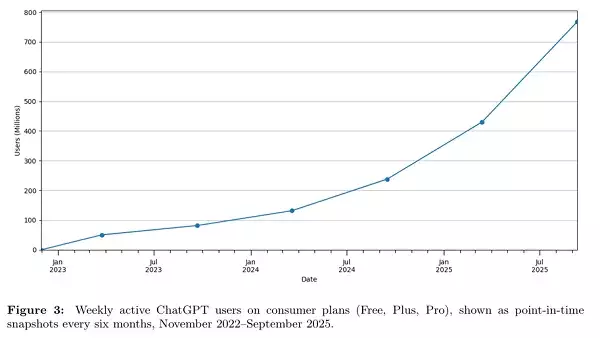Over the past few years, the rapid expansion of ChatGPT usage underscores a fundamental shift in how humans interact with AI. What began as a niche tool with a modest user base has now burgeoned into a global phenomenon, captivating over 700 million weekly active users. This explosive growth is not merely a statistical triumph but a testament to the penetrative power of conversational AI in everyday life. It signals that AI is no longer confined to research labs or tech enthusiasts; it has seamlessly integrated into personal routines and decision-making processes. This trend reflects a broader societal acceptance and an increasing reliance on AI-driven assistance to navigate the complexities of modern existence.
Changing Patterns of User Engagement: From Content Creation to Discovery
Analyzing the nature of ChatGPT interactions reveals fascinating insights into shifting user priorities. While initial predictions anticipated a surge in AI as a creative partner—especially in writing—data shows that practical guidance and information seeking dominate the landscape. Approximately 77% of conversations revolve around these core activities, with practical advice maintaining a steady presence. Interestingly, the share of writing-related queries has declined from 36% in July 2024 to 24% one year later, whereas seeking information has nearly doubled from 14% to 24%. This indicates a strategic reorientation where users lean on ChatGPT as an extension of their search engines, akin to a more conversational and personalized Google.
This pivot highlights a crucial insight: AI tools are increasingly perceived as discovery engines rather than just creative aides. They serve as intelligent companions that streamline decision-making and facilitate knowledge acquisition. This evolution reflects users’ desire for convenience, immediacy, and contextual accuracy—traits traditional search engines struggle to deliver in conversational formats.
From Asking to Doing: A Paradigm Shift in AI Utility
Despite the impressive growth, the report indicates a decline in tasks where users delegate work to ChatGPT—shifting from “Doing” to “Asking.” This trend demonstrates that, at least in the current phase, people prefer AI as an advisor rather than an executor. Why is this happening? Primarily because users see ChatGPT as a reliable partner for decision-making and information gathering rather than an automated worker. This subtle but vital distinction suggests that AI is moving towards being an intelligent assistant rather than a substitute for human effort.
The implication is profound: AI is maturing into a conversational interlocutor that can augment human cognition rather than replace it outright. This points to a future where humans and AI coexist in a symbiotic relationship—each amplifying the other’s strengths. AI becomes a tool for exploration, learning, and strategic thinking, rather than just automation.
The Implications for the Future of Human-AI Interaction
This ongoing transformation offers fertile ground for speculation and strategic planning. If AI continues to evolve along these lines, we might see a fundamental redefinition of digital literacy—where navigating AI-driven discovery becomes an essential skill. Additionally, it challenges traditional notions of productivity and creativity. Instead of viewing AI as a labor replacement, there’s an emerging narrative positioning it as a cognitive partner—facilitating better decisions, offering nuanced insights, and enabling more meaningful engagement with information.
Furthermore, these shifts highlight the importance of designing AI systems that prioritize trust, transparency, and context-awareness. As users depend more on these tools to guide their choices, the ethical and societal responsibilities of AI developers become even more critical. Ultimately, the future of ChatGPT and similar AI platforms hinges on their ability to adapt to evolving human needs—serving as reliable guides in a world overflowing with data but hungry for clarity.
In essence, the trajectory of ChatGPT usage reveals that AI is not just a fleeting technological trend but a fundamental component of human cognition. Its role as an informational partner and decision support system underscores a future where AI fosters smarter, more informed individuals—reshaping the landscape of knowledge, work, and personal growth. This is a pivotal moment—one that challenges us to rethink our relationship with technology and harness its full potential for societal advancement.

